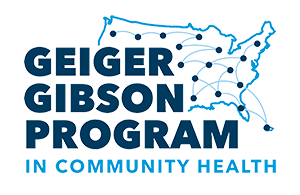This week, the Senate again failed to advance a bill that would reopen the government, and the shutdown, now in week four, continues. At the center of the stalemate is the future of the enhanced premium tax credits or subsidies that have helped make marketplace health coverage affordable and are due to expire on December 31, 2025.
The availability of affordable Marketplace insurance has helped to expand coverage and access in low-income communities served by health centers. In a blog post for The Commonwealth Fund’s To the Point, authors Feygele Jacobs, Kay Johnson and Sara Rosenbaum consider how the loss of premium tax credits will affect the coverage of low-income health center patients now covered by Marketplace plans, and the health centers themselves. We estimate that nearly 2 million CHC patients could lose their coverage in 2026 as premiums increase and subsidies decline. Coverage losses will be especially steep in those states that have not expanded Medicaid. And as more patients lose Marketplace coverage and become uninsured, CHCs will face billions of dollars in lost revenue. The analysis was developed in partnership with Capital Link.
Read Millions of Community Health Center Patients to Lose Coverage When Tax Credits Expire
Capital Link’s National and state-level scenarios are available here
New report: Expiration of enhanced tax credits will shrink state economies and lead to job losses
Leighton Ku, professor of Health Policy and Management and Director of GW’s Center for Health Policy Research, is lead author of a new report, Expiring ACA Premium Tax Credits Could Lead to Nearly 340,000 Jobs Lost Across the U.S. in 2026. The analysis finds that if the enhanced tax credits are not renewed, federal funding for marketplace tax credits will decline by $31 billion. State economies would shrink by nearly $41 billion in 2026, state and local tax revenues would be reduced by $2.5 billion, and an estimated 339,000 jobs would be lost in healthcare and other sectors.
The report was issued by Commonwealth Fund and GWU’s Milken Institute School of Public Health. You can find the full report including state-level estimates on The Commonwealth Fund’s website.
These publications underscore the importance of the enhanced premium tax credits at the patient, health center, and state levels - and the broad deep disruption that will result from their expiration.
Emerging Leaders
Nominations for Emerging Leader Awards are open through November 7. The awards celebrate young leaders whose work has helped further the health center mission of health care and better health for medically underserved patients, communities, and special populations. Nominees include those working across the health center movement – at community and farmworker health centers and health centers whose operations cover health care for the homeless or public housing programs, as well as health center networks and state or regional primary care associations.
Our past Emerging Leaders are exceptional and represent the future of the health center movement. Meet one of our extraordinary 2025 Emerging Leaders, Landen Muāsau of Hawaii’s Waianae Coast Comprehensive Health Center (WCCHC).
Learn more about Emerging Leaders and submit your nomination today!



